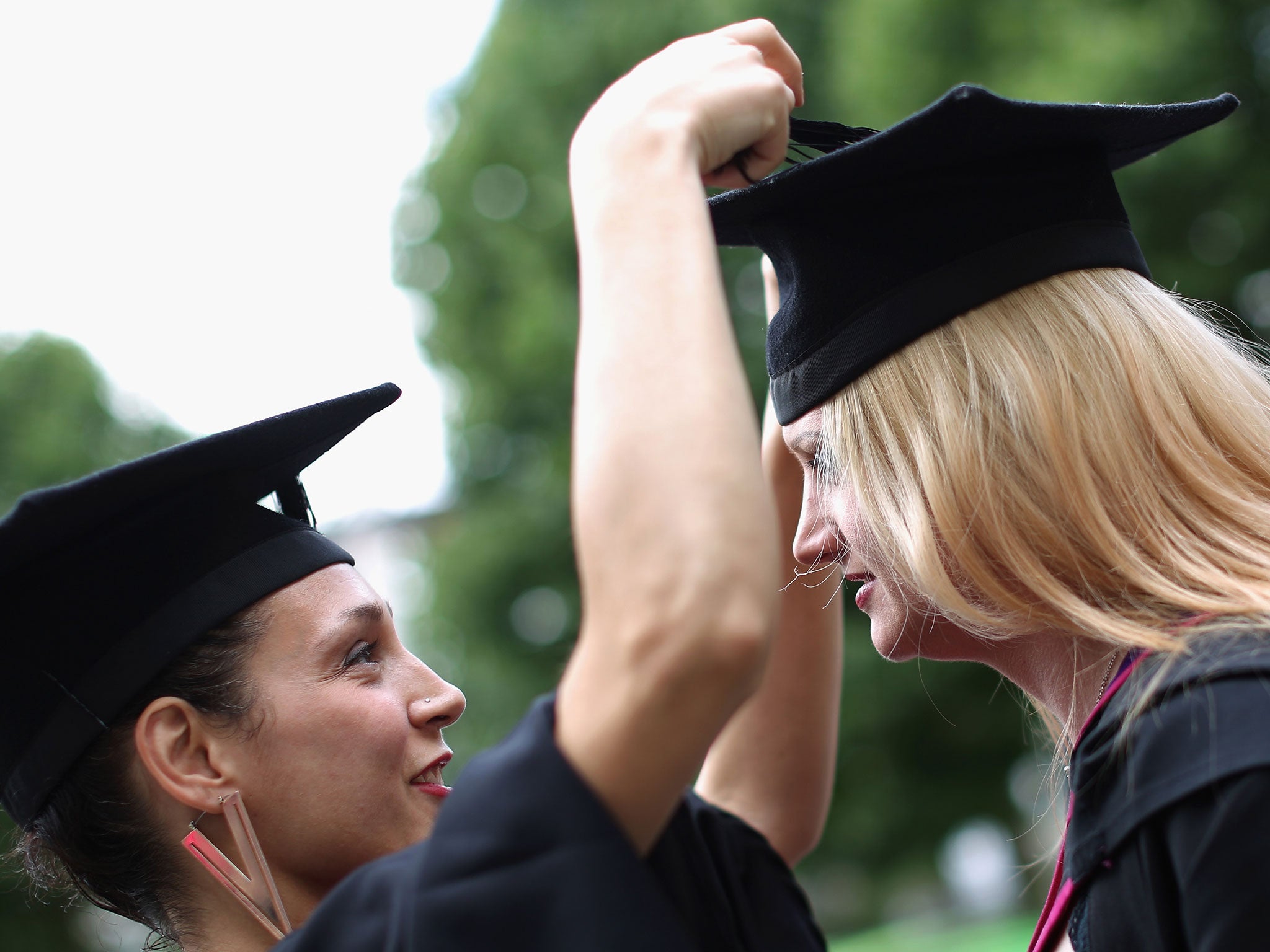Imperial College London beats Oxbridge universities for highest graduate employment rate
Head of London Met - which is at the bottom of the table - highlights disparities between league table data and institutions’ own data

Imperial College London students have more chance of being in a career six months after graduating, compared with the more prestigious Oxbridge universities.
According to the Guardian’s University Guide for 2017, the two elite institutions which traditionally take the top spots in rankings tables have been placed in second and third places respectively.
Robert Gordon University in Aberdeen has emerged as being the only non-English university in the top ten where graduates can find themselves firmly in a job months after finishing their studies.
Top 10 universities with highest graduate career prospects
(score out of 100):
- Imperial College - 90.1
- Cambridge - 89.6
- Oxford - 87.6
- Birmingham - 86.5
- Bath - 84.9
- King’s College London - 84.3
- Sussex - 83.7
- Robert Gordon - 83.5
- Durham - 83.4
- Lancaster - 83.2
Birmingham University’s vice-chancellor, Professor Sir David Eastwood, described how the institution is “profoundly committed” to preparing its students for a successful future. He said: “From the moment our students arrive, we strive to equip them with the necessary knowledge, transferable skills, and confidence to go on to succeed in their chosen fields.”
Robert Gordon’s principal, Professor Ferdinand von Prondzynski, also welcomed the university’s good performance in the latest national league table, and said it demonstrates how staff show “strong dedication in developing and delivering a high-quality educational agenda.”
The pro vice-chancellor for learning and teaching at Bath, Professor Peter Lambert, said the institution’s ranking is a reflection of the “excellent teaching and high levels of student satisfaction,” adding: “Our students gain real-world experience in highly-regarded placement programmes which complements their studies and strengthens their career prospects.”
Top 10 universities with lowest graduate career prospects
(score out of 100):
- East London - 45.5
- London Met - 47.4
- University for the Creative Arts - 51.1
- Liverpool Hope - 54.1
- Southampton Solent - 54.6
- Bath Spa - 54.9
- Newman - 55.0
- Westminster - 55.1
- University Campus Suffolk - 55.4
- Gloucestershire - 55.8
But, while the universities at the top of the list have, naturally, welcomed their position in the rankings, the ones at the bottom, however, have highlighted a disparity between the Guardian’s findings, and their own data.
While vice-chancellor of London Metropolitan University, Professor John Raftery, said the Met was glad to see impact in the Guardian ranking in terms of student satisfaction, teaching, and, in particular, with the speed and quality of academic feedback on student work, he said the university’s own graduate employment data suggests “a far higher proportion” of graduates progress successfully to ‘graduate level’ careers within six months.
He told the Independent: “Using an absolute measure of graduate employment outcomes is valid but incomplete, in that it assumes all universities start with the same opportunity, on a level playing field. I don’t see that as true.

“The Guardian uses a basic measure of value add and we believe this is where the real measure of a university’s effect lies.”
Reflecting on the recent Institute for Fiscal Studies (IFS) study of graduate outcomes, Professor Raftery said it “wasn’t news to me or my colleagues” the IFS discovered that two students with the same qualifications, on the same course, at the same university, can go on to earn less or more, depending only on their family backgrounds.
He continued: “We take a chance on students with fewer traditional qualifications and transform them into degree-holders, representing a bigger ‘value add’ to the student than a well-heeled Russell Group candidate with straight As at A-level.
“Many of our students simply don’t have ‘Mum and Dad’s contact book’ to utilise when seeking a graduate opportunity. They may not be in a position to work for free in an unpaid internship. They do not have the social capital that students from wealthier backgrounds might enjoy, so we try to provide them with those contacts, those networks, and that social capital while we have them, during their studies.”
“A system that only measures outcomes - with no regard for the value that is actually added - will make it harder to justify taking a risk on someone who has big dreams and big potential, but whose background is a little bit different.”
Join our commenting forum
Join thought-provoking conversations, follow other Independent readers and see their replies
Comments
Bookmark popover
Removed from bookmarks